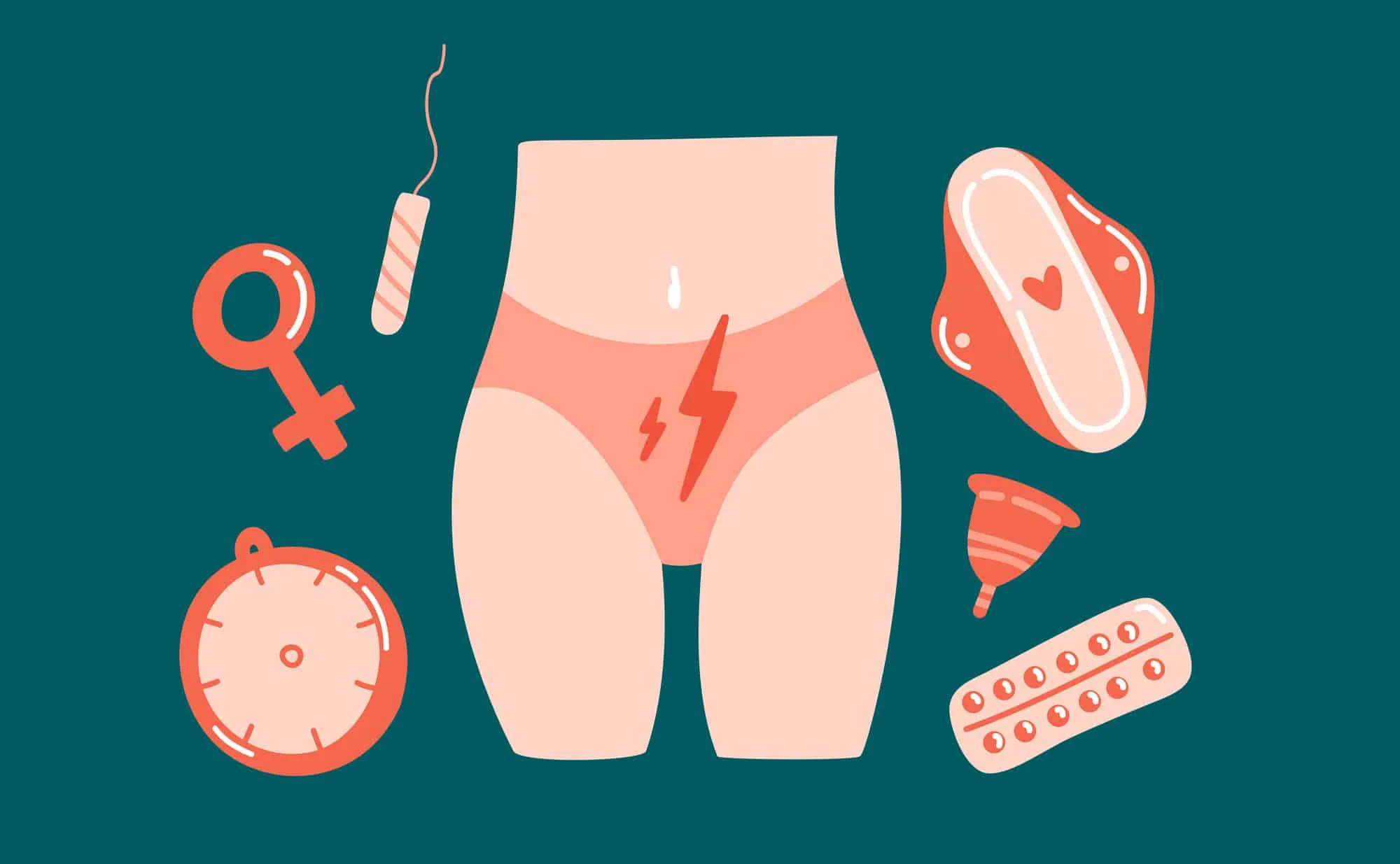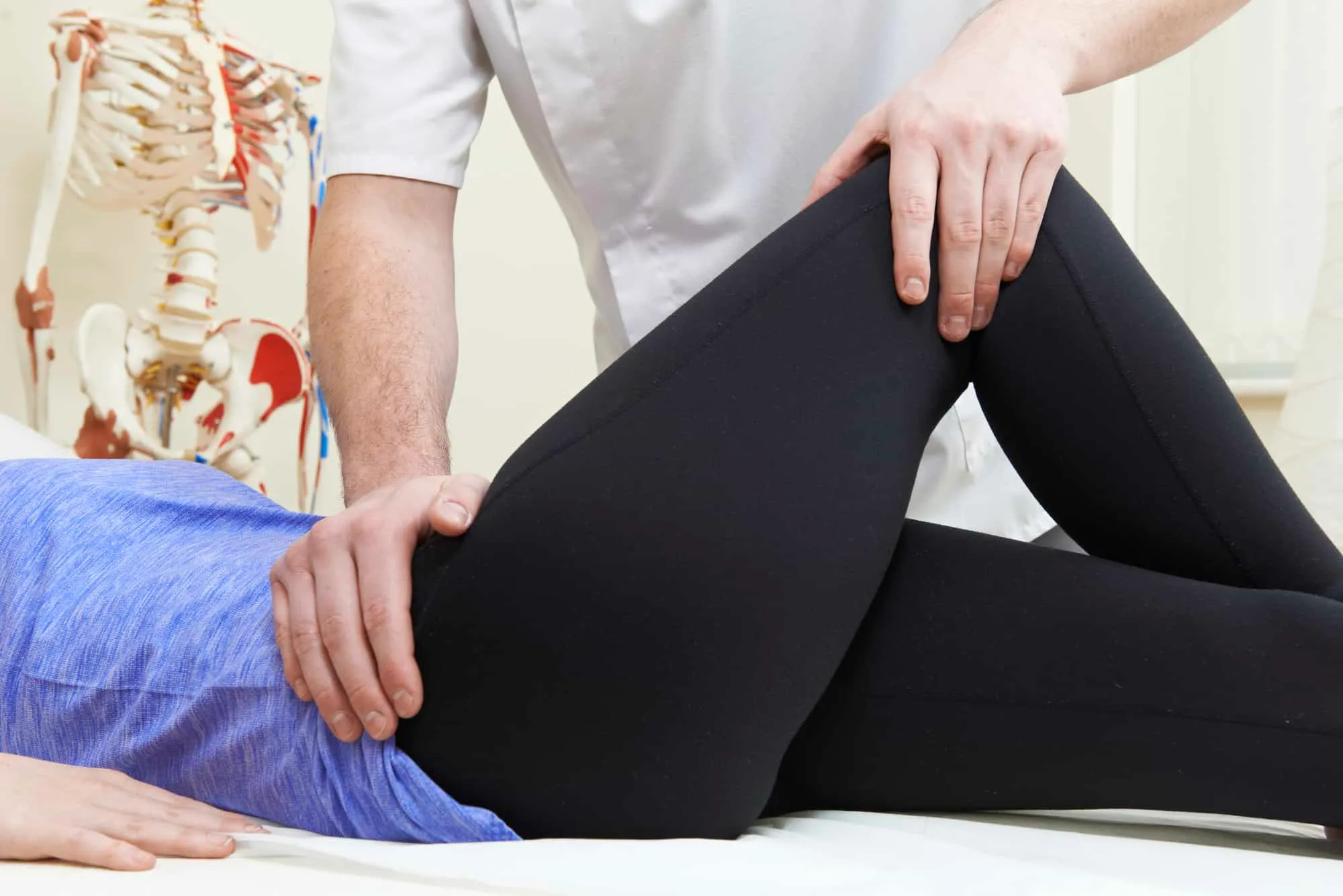Do you feel like your pelvic floor muscles are permanently tense?
When you have a weak pelvic floor or muscles, you can’t relax. It can lead to a “hypertonic pelvic floor,” “pelvic floor tension myalgia” or, as it’s more commonly called, pelvic floor dysfunction.
The condition is associated with many uncomfortable and potentially embarrassing symptoms. For instance, we need to be able to control and relax the pelvic floor muscles during bowel movements.
When fully relaxing the pelvic floor muscles isn’t possible, it can lead to the following symptoms:
– Frequently needing to urinate.
– Leakage of stool or urine
– Constipation and difficulty in defecation
But even if you don’t have any of those symptoms, “hypertonicity” or chronic tension in the pelvic floor muscles can also cause constant pain and discomfort and ultimately damage the muscles.
As a result, your sex life can suffer, and it can cause complications during conception, pregnancy, childbirth, and labor.
We know that if left unchecked, pelvic floor dysfunction can affect your quality of life and confidence.
More Blogs From Universus:
Can Physical Therapy Help With Postpartum Depression?
Is Pain Putting The Brakes On Your Sex Life?
Pelvic Pain: This Is Not Something We Only See In Pregnancy Or The Postpartum Period
The critical thing to remember is that Kegels might NOT be the answer – even though well-meaning friends and relatives might have told you that you should be doing them.
In some cases, these exercises are entirely the wrong thing to do in certain situations.
So, read on to find out more. Still, we would 100% recommend that you visit us for a complete evaluation and to find the root cause before attempting to treat pelvic floor dysfunction at home.
What Is Pelvic Floor Dysfunction?

Pelvic floor dysfunction relating to an inability to relax the muscles (which is most notable while peeing or during bowel movements) can result in erectile dysfunction (ED) for men and cause pain during sexual intercourse for women, among many other symptoms.
The pelvic floor muscles are at the bottom of the torso, at the base of the pelvis.
These powerful hammock-shaped muscles support and hold the vital pelvic organs like the uterus, vagina, prostate, rectum, and bladder.
When you usually have a functioning and “relaxable” pelvic floor muscles. You can pass urine and have regular bowel movements because the muscles relax and contract as they should.
However, when you suffer from a specific type of pelvic floor muscle dysfunction.
Where you can’t relax them, your muscles tighten instead of relaxing, which can cause:
– Feeling like you haven’t emptied your bowels completely
– Difficulty in passing urine or when defecating
– Urinary or stool leakage
– Pain while urinating
– Lower back pain
– Pain in the pelvic region
– Pain during sexual intercourse
– Leaking urine while exercising
– Painful bowel movements
– Pain around the vagina
– Abdominal pain
What Causes Pelvic Floor Dysfunction?

The (medical) jury is still out on why pelvic floor tension and dysfunction occur and what causes it. There is still some mystery surrounding the condition in the scientific community.
But some of the known contributory factors are:
– Severe trauma to the pelvic floor region
– Pregnancy in women
– Due to chronic constipation, straining the pelvic floor muscles over a long period during bowel movements impairs muscle coordination.
– Undergoing surgery to the pelvis
– The aging process (senior adults are more prone to PF muscles dysfunction)
– Extremely overweight, obesity
What Is The Link Between Pregnancy and Pelvic Floor Dysfunction?

One of the most common reasons for pelvic floor dysfunction and tight pelvic floor muscle development is pregnancy.
However, most women don’t develop pelvic floor dysfunction until after labor and childbirth because the connective tissues and the pelvic floor muscles are under tremendous strain during delivery.
This strain leads to damage, dysfunction, and a potential loss of effective control over the muscles.
Other Causes Of Pelvic Floor Dysfunction
Some patients might inherit pelvic floor dysfunction from their family, which is known as a “hereditary condition.”
Studies are currently in progress to determine the influence of genetics concerning pelvic floor dysfunction and whether there is a connection.
How Do We Diagnose Pelvic Floor Dysfunction?

Your physical therapist will inquire about your symptoms to find out whether your symptoms are associated with pelvic floor dysfunction.
First, we’ll evaluate your medical history and ask you the following questions:
– Have you undergone a pregnancy?
– Do you have a history of UTIs (urinary tract infections)?
– Do you feel pain during sexual intercourse (women)?
– Do you suffer from irritable bowel syndrome or Interstitial Cystitis?
– Are bowel movements difficult, and do you need to strain?
Next, we’ll perform a physical exam to examine your control over your pelvic floor muscles.
This manual exam may also look for knots, spasms, and weak muscles. We may also check your control over your pelvic floor muscles using electrodes.
We place these electrodes externally on the perineal region (the area between the rectum and the vagina or the rectum and the testicles). In most cases, we should be able to diagnose you at this point.
However, if the condition and the symptoms are severe, you may need further evaluation in a medical setting.
For instance, your doctor may decide that you need one or more of the following tests to diagnose your condition fully:
Vaginal or intrarectal examination
An examination where the doctor examines your pelvic floor muscles internally by inserting their fingers into your vagina or rectum.
Proctogram
You’re given a viscous liquid in the form of an enema and then perform a bowel movement.
A video x-ray machine determines the movement of rectum muscles as the liquid moves through your bowel.
It gives a clear picture of your bowel movements and if there are any obstructions or other reasons for your pelvic floor dysfunction.
Uroflow test
This test measures the functioning of the urinary bladder.
If you urinate intermittently or your urine flow is irregular, it can indicate a pelvic floor muscle dysfunction. A uroflow test can help diagnose what is causing the problem.
Anorectal manometry test
This test helps determine whether your anal sphincters are functioning correctly and checks the pelvic floor muscles’ coordination, strength, and internal pressure.
How Physical Therapy Helps You Relax Your Pelvic Floor

The good news is that most people can avoid invasive medical tests. Early-stage hypertonic pelvic floors and pelvic floor muscle dysfunction are relatively easy to treat in most patients.
However, depending on the severity of your symptoms and the level of hypertonicity, you may need to work with a physical therapist over several months to achieve complete resolution.
But physical therapy is one of the most effective treatments to address both the underlying cause and the symptoms of pelvic floor dysfunction, especially when the issue is the inability to relax the muscles.
At Universus Physical Therapy, we combine physical therapy and therapeutic exercises with biofeedback treatment.
Biofeedback is the most used treatment for pelvic floor dysfunction.
It’s a non-painful procedure that helps to restore normal pelvic floor functioning.
We use Biofeedback treatment in various ways to strengthen the pelvic floor muscles.
Namely, using specialized sensors to evaluate your pelvic floor muscles as you relax and contract them.
Check whether you are performing the exercises correctly and contracting and relaxing the right muscles.
We teach you how to improve your pelvic health and determine what’s going on with your pelvic floor and why you’re leaking urine or feeling pain during intercourse.
Instead, we help you enjoy being intimate again and live with energy every day.
During our sessions, we also look for and treat any tension in your lower back, hips, pelvis, and thoracic spine that may contribute to your symptoms.
We then guide you, over time, to practice specific stretching exercises to relax the muscles and improve your pelvic floor muscle control and coordination.
We may also suggest using additional relaxation techniques such as yoga, meditation, gentle muscle stretching, and warm baths at home to maximize the effectiveness of your in-clinic sessions.
Do You Want To Find Out More?

Free Telephone Consultation
We offer a free Pelvic Floor Therapy “Telephone” consultation with a women’s health specialist, perfect for you if you have symptoms and you’re unsure whether we can help.
After the call, you’ll know exactly what’s going on with your pelvic floor muscles and how specialized physical therapy at Universus Physical Therapy can help.
However, don’t mess around. We only offer a limited number of these free consultations every month on a first-come, first-served basis.
So, if you want to guarantee your free consultation as quickly as possible, book now to reserve your spot. We’ll be in touch soon to confirm your appointment.
If you prefer, you can also visit us in the clinic for a free Discovery Visit. A taster session where you get to meet your physical therapists in person instead of just talk to them over the phone. But the choice is entirely up to you.


